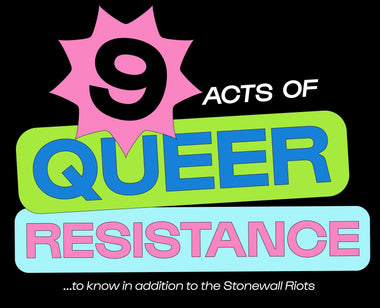Interview with the Global Network of Sex Work Projects (NSWP)

On the (very tall, very clear) heels of our collaboration launch with Exotic Cancer, we'll also be highlighting the work and advocacy of NSWP, the Global Network of Sex Work Projects. When you purchase the Exotic Cancer x Unbound: Nipple and Clit Clamp, 6.9% of Unbound's portion of the revenue to the NSWP, an organization that was selected by Exotic Cancer so they can continue their incredible work. We chatted with Ruth Morgan Thomas, the Global Coordinator at NSWP to learn more.
What does NSWP do?
NSWP is a membership organization. Our members are local, national or regional sex worker-led organizations and networks across five regions: Africa, Asia and the Pacific, Europe, Latin America, and North America and the Caribbean with 260 members in 80 countries. NSWP exists to uphold the voice of sex workers globally and connect regional networks advocating for the rights of female, male, and transgender sex workers.
NSWP’s work is based on three core values:
(1) Acceptance of sex work as work.
(2) Opposition to all forms of criminalization and other legal oppression of sex work, including sex workers, clients, third parties, families, partners and friends (the term ‘third parties’ includes managers, brothel keepers, receptionists, maids, drivers, landlords, hotels who rent rooms to sex workers and anyone else who is seen as facilitating sex work).
(3) Supporting self-organization and self-determination of sex workers.
NSWP works through regional sex worker-led networks to amplify sex workers’ voices and advocate for rights-based services, freedom from abuse and discrimination, freedom from punitive laws, policies and practices, and self-determination for sex workers. This is achieved through facilitating sex worker representation in international policy and program forums, publishing advocacy tools as part of a wide range of resources, and work with regional sex worker-led networks to strengthen capacity among national sex worker-led organizations.
What defines sex work?
The term ‘sex work’ encompasses sex workers, clients, third parties, families, partners, and friends. It is important to advocate for the full decriminalization of sex work, as the criminalization of clients and third parties has an extremely negative impact on sex workers. Where clients are criminalized, sex workers experience more precarious working conditions, more violence, and more stigma. The criminalization of third parties compromises sex workers’ safety and often ends with sex workers themselves being prosecuted.
What are the biggest challenges that sex workers face?
Sex workers globally face many challenges. Sex work is criminalized in most parts of the world, and sex workers experience stigma and discrimination at both institutional and interpersonal levels all over the world. Sex workers often face huge challenges in accessing healthcare services, in traveling and migrating, and in advocating for better working conditions.
The anti-trafficking movement often pushes for policies that violate sex workers’ human rights, by conflating sex work with sexual exploitation, and exploitative working conditions in the sex industry with human trafficking. Often these initiatives prevent sex workers from organizing for better work conditions or asserting their labor rights, create economic insecurity, and exacerbate sex workers’ vulnerability to exploitation.
What is the difference between legalizing and decriminalizing sex work?
Legalization is the introduction of laws that impose state regulation and control sex work. In practice, legalization means there are often many restrictions on how, when and where sex work can happen, which creates a two-tiered system of illegal and legal workers. For example, in Senegal, sex workers can work legally if they are women over the age of 21, and officially registered with the state. The Senegalese Ministry of Health has said that the registration system doesn’t work, as only 20% of sex workers across Senegal and 43% in Dakar have registered with the government. In addition, many legalized systems require mandatory registration and HIV and STI testing which is a violation of sex workers' human rights.
Decriminalization refers to the removal of all criminal laws and other legal oppression of sex work and sex workers, allowing sex work to be regulated under existing employment, and health, safety and planning legislation and regulations. Other forms of legal oppression that must be removed include laws against vagrancy, public nuisance, obscenity, drug use, and homosexuality as well as religious laws and public health legislation that impact and are used to target sex workers.
Fundamental feminists and abolitionist groups have sought to create confusion by using the term decriminalization or partial decriminalization when referring to the Swedish Model, co-opting the language of the sex worker rights movement. However, sex workers were never criminalized in Sweden, and if you have never been criminalized you cannot be decriminalized. These groups seek to ensure the criminalization of both clients and third parties with the aim of eradicating sex work. In reality, these laws continue to impact sex workers, who often remain criminalized as third parties.
What can I do to ensure the politicians I support are running on pro-sex work platforms?
Get in touch with candidates and ask their position on sex work and decriminalization. You can use the evidence and lived experiences documented in NSWP advocacy tools to support your discussion, and those published by NSWP members. You can also get in touch with your local sex worker group to see what work is being done already.
What else can I do to support NSWP and sex workers?
Stay up to date with news about sex work, amplify sex workers’ voices where you can, and support measures to uphold sex workers’ human rights in other forums. Many organizations working in adjacent sectors have publicly announced their support for full decriminalization of sex work (for example ILGA announced their policy earlier this year). A good way to keep in touch is to follow sex workers and sex worker organizations on social media. You can sign up to hear from NSWP here.

Latest Articles

A Hot and Quick Guide to BV, UTIs, and Yeast Infections

9 Acts of Queer Resistance to Know in Addition to the Stonewall Riots









